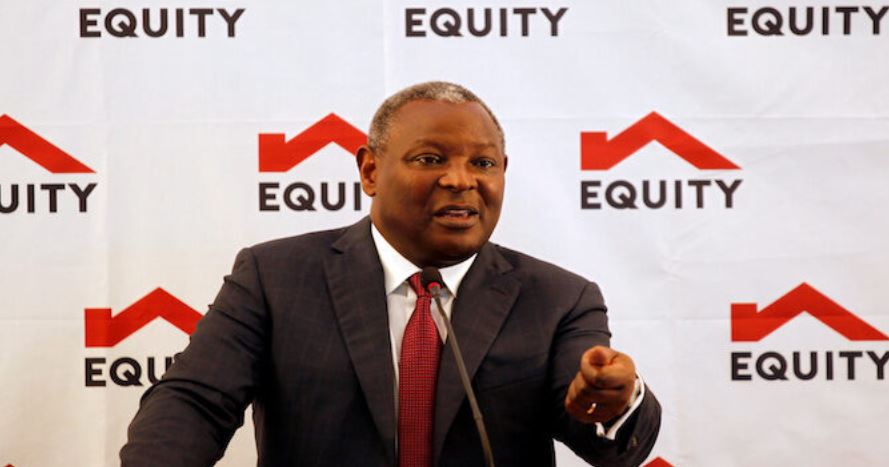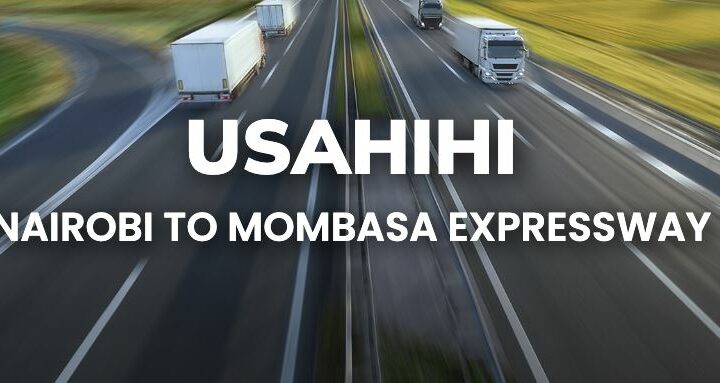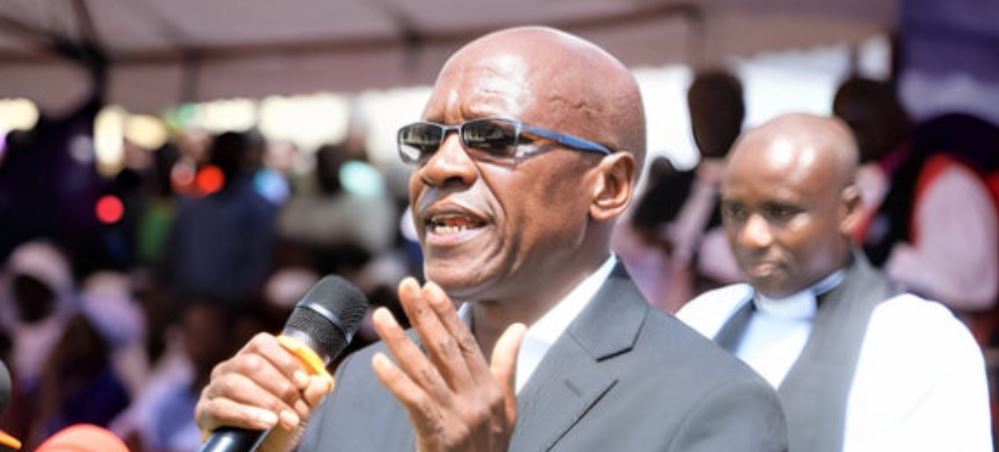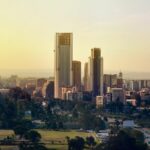
The Equity Group’s chief executive James Mwangi spoke to TheEastAfrican about the bank’s expansion in the mineral-rich country.
You have invested more than 20 per cent of Equity Group’s assets in DRC, a country perceived to be politically unstable. What makes DRC so critical to your strategy that you have chosen to take a big bet on this market?
Two things have come out. The first one is the trajectory that the country itself has taken. We have been in the country for the past six years since we bought ProCredit, a Germany bank.
We have studied the market and we have seen it has started to take a path to stability. The way it has managed the two- year delayed period for elections and then the transition, from President Joseph Kabila to President Felix Tshisekedi, speaks a lot.
You look also at the development of infrastructure over the past 10 years, it shows a country that has taken a long-term view. When you look at the road infrastructure that has been done, when you look at the plans to develop the Inga dam, the commitment by the African Union (AU), the commitment by the international community, it shows how the world is interested and eager to invest in the future of DRC.
How do you expect to replicate the Equity Bank model in the DRC market?
We believe so much in DRC because this country is currently where Kenya was in the late 80s and early 90s when the story of Equity Bank started, with about four per cent to six per cent of the adult population having access to financial services.
That is where Kenya was in the late 80s and consequently we can take the same roadmap that we took, the lessons that we learnt with Equity in Kenya and replicate them down in a country whose population is three times of what Kenya was in the late 80s.
So we believe there is every reason to replicate the Kenyan story in DRC but now not in over 30 years but in less than 10 years because of technology. We are going to leverage on technology, lessons and knowledge we have accumulated and to avoid the mistakes that we have made in Kenya.
We are starting this story with the capability and strength of Equity, we are not starting with an insolvent Equity like it was that time. That is why we are so confident.
Why did you partner with the International Finance Corporation (IFC) to enter the Congolese Market?
IFC is already a shareholder in Equity Bank Congo (EBC) S.A. We acquired ProCredit Bank together with IFC and we have persuaded them that as we buy George Arthur Forrest Family’s shareholding of 66.53 per cent in BCDC they should take up the government’s 25 per cent and that is the partnership we are really looking forward to see happen.
We want to have a strong partner who can lead the financial reforms, a partner who can bring in trust, brand and reputation of the World Bank and a partner who can help us access global resources and capability.
Do you expect to inject additional capital in the Congolese subsidiaries?
At the moment the two banks are very well capitalised because as you can see this year we also requested BCDC for the first time in a long time not to pay dividends like what we did in Kenya.
That was one of the conditions for the purchase of the bank. So this puts the bank in a very good capital position. Equity Bank Congo (EBC) is also well capitalised, we can only go for Tier 2 capital just to strengthen but in terms of core capital we are very well positioned.
What is your assessment of the country’s political environment?
We have been in the country for the past six years and what we have just seen is improved governance structures, improved political environment. We have witnessed a political transition that has happened smoothly.
We have observed political electioneering whose outcome was accepted and we have seen a rare occurrence where a president in office loses power to the opposition and gladly transfers power and since the transfer of power we have witnessed improved governance.
So to us it is a pointer to a country going through transformation. We have also witnessed very strong reforms particularly in what I would call anti-corruption campaign. The past 12 months have shown very strong determination and commitment of the government to do very difficult reforms particularly those of governance.
We have also seen how the country has been embraced in the region and in the continent and the place it has been positioned by the African Union. It only gives us confidence. We have also witnessed the massive private sector investment that has taken root in DRC.






